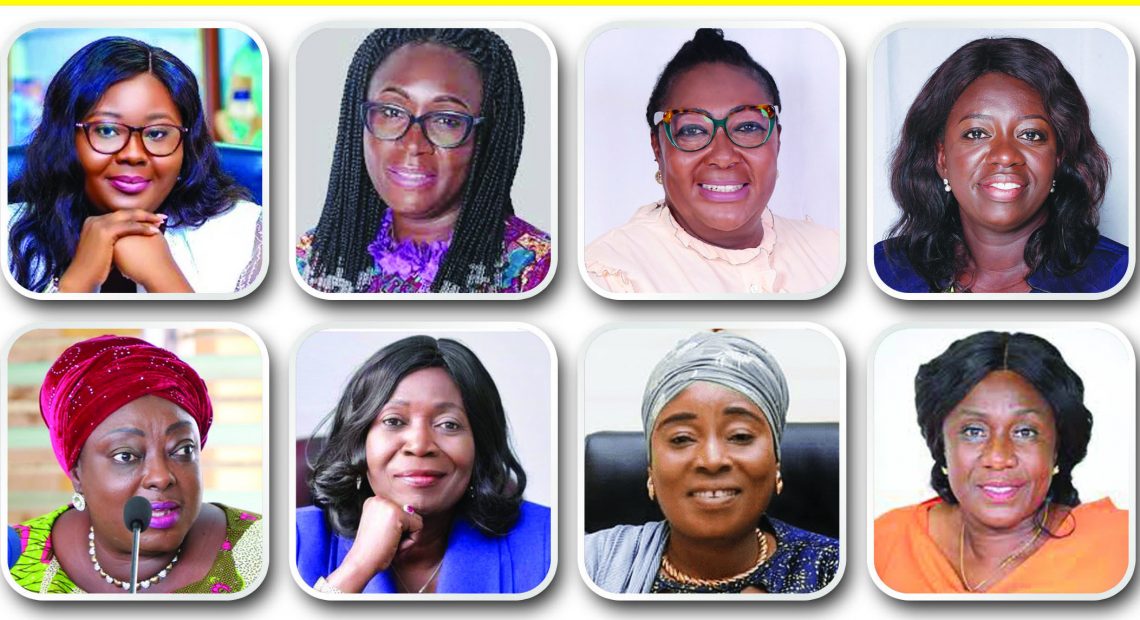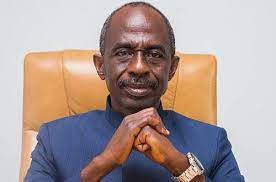Women Representation Suffers Further Setback

…Number of Female MPs To Drop Marginally After 2024 Poll
The campaign to get more women in Parliament last Saturday suffered further setback, following the conclusion of the parliamentary primary of the New Patriotic Party (NPP).
The party, which had 20 female MPs out of the 137 Majority members, has had this number slashed further, raising concern about how the debate to get more female representation into the House is becoming a mirage.
The development has resurrected the discussion about how, as a country, Ghana has paid lip service to the cause of women in politics, even though statistics show women participation in decision making continues to be on the downward trend.
The opposition National Democratic Congress (NDC) also has the same equal number of female 20 MPs, but only three of them lost their bid during their primary.
This means that only 14.5% of the total population of MPs are women, while the men continue to be in the commanding majority.
But the situation at the end of the NPP primary over the weekend has compounded even more, as seven more women failed in their reelection bid, putting the number of female MPs in the 9th Parliament at a disadvantage.
The failed MPs are Tina Gifty Mensah of Weija-Gbawe, Tano North’s Freda Prempeh, Dome Kwabenya’s Sarah Adwoa Safo, Ms Ama Pomaa Boateng of Juaben, Gifty Twum Ampofo of Abuakwa North, Walewale’s Lariba Zueira Abudu, who is the Minister for Gender Children and Social Protection Minister.
Except in the case of the Ablekuma North constituency’s Sheila Bartels, who lost her seat to another female, Nana Akua Owusu Afriyie, a former MP of the area.
The eighth MP,Madam Francisca Oteng, representing the people of Kwabre East, joined 17 other senior colleagues in the party not to seek reelection, after two terms. Even in her constituency, she is being replaced by a male candidate who won the primary.
The number is also not encouraging when it comes to females who managed to win the primary for the major election, slated for December this year.
In the Eastern Region, for instance, out of the nine women aspirants, only two were successful.
They were deputy Minister for Finance,Abena Osei-Asare MP for Atiwa East, and LaurettaKorkor Asante for the Atiwa West, a deputy director of the Social Security and National Insurance Trust (SSNIT).
In the Ashanti Region, only three female MPs were succeeded.
They are AfigyaSekyere East – Mavis Nkansah-Boadu, Asokwa – Patricia Appiagyei and Adelaide NtimforNsutaKwamangBeposo constituency.
It appears that, the political parties especially have also failed to put deliberate policies and programs in place to ensure that women are protected to some extent in such elections which have become male dominated.
Failure of FiDA
In the past, even though the Member of Parliament for the Ablekuma West constituency, Ursula Owusu Ekuful, has been winning her seat back to back, she has been vocal about this, but she has been unsuccessful.
Women groups including Abantu for Development, Ark Foundation, International Federation of Women Lawyers Ghana- Ghana FiDA, have made similar calls to no avail.
Meanwhile, People’s National Convention (PNC) has waded into the issue expressing serious concern over it.
According to the PNC, such a trend could potentially decrease female representation in the 2024 elections.
The party stated that it was discouraging to see that the NPP in particular took no steps to protect female parliamentarians in the just-ended election.
The inaction of the NPP, according to the PNC, is akin to the marginalization of women in Ghana’s political sphere.
They have thus urged parliament to enact laws that address challenges of gender inequalities.
“It is concerning that there are still issues of low representation of women in politics, and parliament appears to be ignoring the concerns of women in Ghana by not passing the affirmative action bill,” the PNC stated.
The PNC has thus encouraged Ghanaian women to utilize demonstrations and boycotts, including potentially boycotting the 2024 elections, if the Affirmative Action Bill is not passed into law prior to the elections.
“Both the NPP and the NDC, as political parties represented in parliament, have taken the women of Ghana for granted. We appeal to all women in Ghana, including female politicians, food sellers, market women, women in farming, and those in the private and public sectors, to stand up and demonstrate for their rights.”
The party also called on “civil society organizations, the media, academia, religious leaders and experts to shift their focus from NPP and NDC politics and instead exert pressure on these two political parties to pass the Affirmative Action Bill into law, in order to ensure female participation in Ghana’s politics.”
The party vowed that a future PNC government upon assuming office will pass the Affirmative Action Bill into law within six months and transform the Ministry of Gender into a non-political ministry by granting gender-based institutions the power to appoint the head of the ministry.
Source:Anchorghana.com




